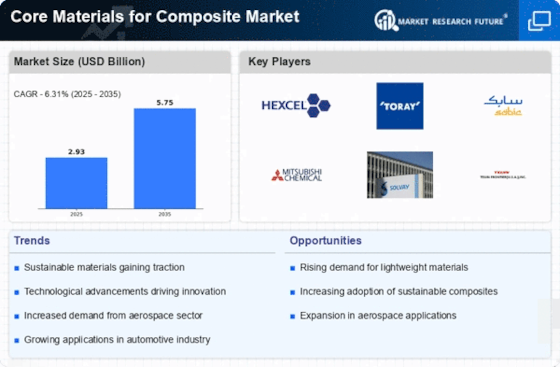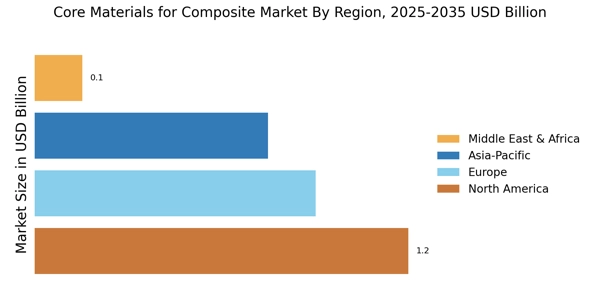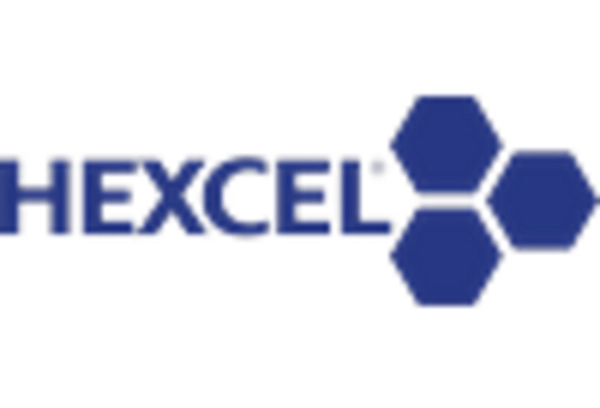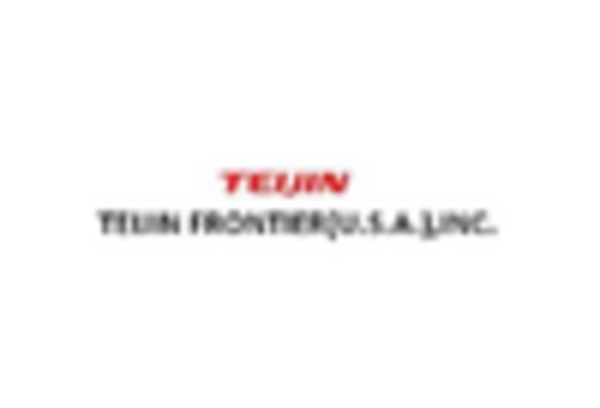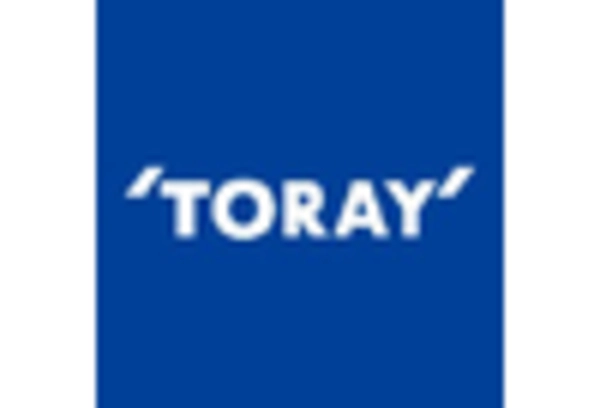Rising Demand in Aerospace Sector
The aerospace sector is experiencing a notable increase in demand for lightweight and high-strength materials, which is propelling the Core Materials for Composite Market. As aircraft manufacturers seek to enhance fuel efficiency and reduce emissions, the utilization of composite materials has become paramount. In 2025, the aerospace industry is projected to account for approximately 30% of the total demand for core materials, driven by innovations in design and engineering. This trend indicates a shift towards advanced composite structures, which require specialized core materials to achieve optimal performance. The emphasis on safety and durability further underscores the importance of these materials in aerospace applications, suggesting a robust growth trajectory for the Core Materials for Composite Market.
Growth in Renewable Energy Applications
The renewable energy sector, particularly wind energy, is increasingly adopting composite materials for turbine blades and other components, thereby influencing the Core Materials for Composite Market. As countries strive to meet energy transition goals, the demand for lightweight and durable materials is surging. In 2025, it is estimated that the wind energy segment will represent around 25% of the core materials market, reflecting a significant shift towards sustainable energy solutions. The integration of composite materials not only enhances the efficiency of wind turbines but also extends their lifespan, which is crucial for reducing maintenance costs. This trend indicates a promising future for the Core Materials for Composite Market, as the push for renewable energy continues to gain momentum.
Advancements in Manufacturing Technologies
Technological advancements in manufacturing processes are revolutionizing the Core Materials for Composite Market. Innovations such as automated fiber placement and 3D printing are enabling the production of complex composite structures with enhanced precision and reduced waste. These advancements are expected to increase the efficiency of material usage, potentially lowering costs and improving the overall performance of composite products. In 2025, the market for advanced manufacturing technologies is projected to grow by approximately 15%, indicating a strong correlation between technology and market expansion. As manufacturers adopt these cutting-edge techniques, the Core Materials for Composite Market is likely to witness a transformation in production capabilities, leading to more competitive offerings.
Emerging Applications in Sports and Leisure
The sports and leisure industry is witnessing a surge in the adoption of composite materials, which is positively impacting the Core Materials for Composite Market. High-performance sports equipment, such as bicycles, surfboards, and golf clubs, increasingly utilize advanced composites to enhance performance and durability. In 2025, the market for core materials in this sector is projected to grow by approximately 10%, driven by consumer demand for lightweight and high-strength products. This trend indicates a broader acceptance of composite materials beyond traditional applications, suggesting that the Core Materials for Composite Market may expand into new and innovative areas. As manufacturers continue to explore the potential of composites, the market is likely to experience further diversification.
Increased Investment in Automotive Lightweighting
The automotive industry is undergoing a significant transformation, with a strong focus on lightweighting to improve fuel efficiency and reduce emissions. This trend is driving the demand for core materials in the Core Materials for Composite Market. In 2025, it is anticipated that the automotive sector will account for nearly 20% of the total market share for core materials, as manufacturers increasingly incorporate composites into vehicle designs. The shift towards electric vehicles further amplifies this demand, as lightweight materials are essential for enhancing battery performance and overall vehicle range. This growing investment in lightweighting strategies suggests a robust future for the Core Materials for Composite Market, as automotive manufacturers seek to meet stringent regulatory standards.


